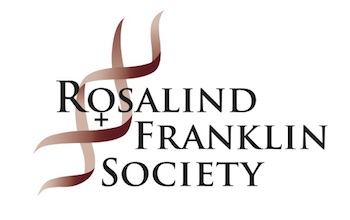RFS Briefings - June 22, 2021
Dear Colleagues,
I am pleased to include another issue of RFS Briefings with some timely and encouraging updates on women in science.
A few highlights to focus on here include upcoming events and awards:
-
The 2022 Vilcek Prize for Excellence in Biotechnology has been awarded to Dr. Katalin Karikó, the senior vice president at BioNTech RNA Pharmaceuticals and adjunct associate professor of neurosurgery at the University of Pennsylvania. Read more.
-
Helen Branswell, Andrew Joseph and the late Sharon Begley of STAT have been named a finalist for the Pulitzer Prize in the breaking news category. Read more.
-
STAT is now accepting applications for the Sharon Begley-STAT Science Reporting Fellowship, a new program with the goal of diversifying the ranks of science and health journalists and fostering better coverage of science that is relevant to all people. Read more.
-
The Chan Zuckerberg Initiative (CZI) announced nearly $28 million in grants to support technology developments that will allow researchers to see the inner workings of cells at near-atomic resolution. CZI also launched a new funding opportunity to support plugin development projects for the napari image analysis platform. Read more.
-
The Story Exchange will award $5,000 incentive prizes to 5 female scientists addressing climate change. Eligible candidates will be scientists with advanced degrees in the fields of physics, chemistry, engineering, biology, environmental science or closely related fields. Read more.
See below for more news about women in science
Please continue to share important news and opportunities with us so that we may share it with you, and others who are committed to supporting the careers of exceptional women in science.
Stay safe and sound,
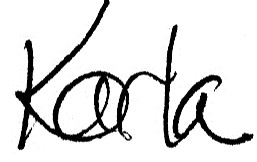
Karla Shepard Rubinger
Executive Director
Rosalind Franklin Society
www.rosalindfranklinsociety.org
Dr. Katalin Karikó receives 2022 Vilcek Prize for Excellence for pioneering vaccine research.
The 2022 Vilcek Prize for Excellence in Biotechnology is awarded to Dr. Katalin Karikó. The award recognizes the Hungarian-born biochemist for her research discoveries that led to the development of mRNA vaccines for COVID-19. Katalin is the senior vice president at BioNTech RNA Pharmaceuticals and adjunct associate professor of neurosurgery at the University of Pennsylvania. Read more.
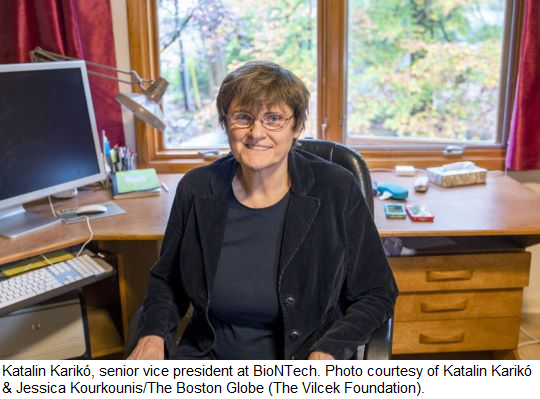
3 students named winners of Artemis Moon Pod essay contest.
NASA has selected three students (2 young women!) as the winners of the Artemis Moon Pod Essay Contest for their creative visions of a pioneering journey to the Moon. Read more.
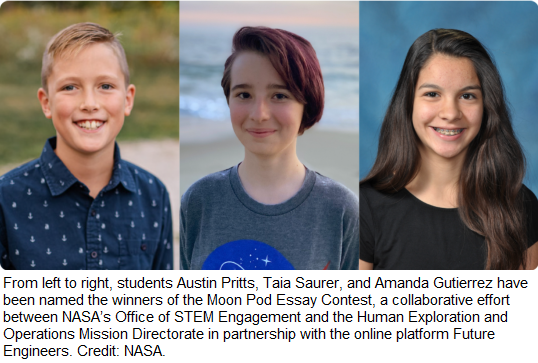
‘Hidden Figure’ whose mathematical modelling enabled GPS becomes first woman to win the Prince Philip Medal.
The Royal Academy of Engineering has presented its highest individual award – the Prince Philip Medal – to Dr. Gladys West, whose mathematical modelling paved the way for the engineering innovation of GPS. As a pioneer in the use of complex mathematics and efficient programming to process early satellite data to generate accurate, repeatable and global models of the Earth’s geoid, her work underpinned the mapping functions of GPS and the study of global mean sea level. Read more.
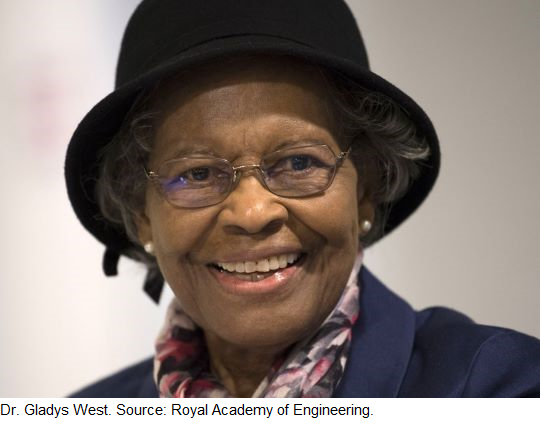
A steward of science.
Building on a lifelong passion for biomedical research, and then its application in policy and health equity as a leader in various interconnected settings, Michelle McMurry-Heath, president and CEO of BIO, is uniquely positioned as a “translator” for science and social advocacy. The Pharmaceutical Executive magazine recently checked in with her to provide an update on BIO’s activities, as well as expand on the experiences that she brings to bear on her leadership of the world’s largest advocacy association serving the biotech industry. She was recently a speaker for our conference “Labs, Leaders, Critical Connections.” You can listen to the presentation here. Read more.
Gender bias toward men in patent awards results in less biomedical innovation for women, study suggests.
The study found that female inventors are more likely to come up with biomedical ideas and products that focus on the needs of women whereas male inventors are more inclined to focus on products for men. According to the authors, society may be missing out on medications, devices, and technology that could benefit women’s health. Read more.
Birthday Honours 2021: Covid vaccine heroes recognized by Queen Elizabeth.
Key figures from the UK's Covid vaccine programme, and community volunteers who helped during the pandemic, lead the Queen's Birthday Honours list. Oxford vaccine developer Prof. Sarah Gilbert and the former chair of the UK vaccine taskforce Kate Bingham are both recognized with damehoods. Read more.
Voices of biotech leaders.
What will be the most important developments in biotech business and its contributions across the globe in the coming years? In which areas will life-science enterprises make the biggest impact on society and why? Nature Biotechnology reached out to a selection of leaders representing a cross section of the industry and asked them to contribute their visions of the future. Read more.
Katherine Johnson’s memoir charts her bold trajectory to NASA and beyond.
At NASA, Mathematician Katherine Johnson calculated trajectories and launch windows for the Project Mercury human space-flight programme. Meanwhile, she had to navigate her own path in an age when segregation and disenfranchisement were legal in the United States. My Remarkable Journey keenly shows how Johnson overcame the gravitational pulls of gender and racial discrimination. Read more.
In docuseries Not the Science Type, trailblazing women buck stereotypes.
There's a stereotype of scientists, the trailer for docuseries Not the Science Type tells us, "that they're male, and they're boring, they don't dress well, and they've very awkward." The series, which explores the negative impact stereotypes can have on STEM diversity, equity and inclusion, had its world premiere on June 17 during the Tribeca Film Festival, and it'll stream on platforms including Apple TV and Google Play. The women who share their stories have followed different paths to science success, but they share a common experience. All have felt excluded in traditionally homogeneous fields. Read more.
The C.D.C. 's new leader follows the science. Is that enough?
Many CDC scientists were relieved to have a leader who put science above politics. But the confusing communications rattled a few, turning optimism into “uncertainty and disappointment,” one senior C.D.C. scientist said in April, according to The New York Times. “The ground is not nearly as stable as we thought it would be.” Read more.
MEPs to call for more financing for female entrepreneurs 10 Jun 2021.
The European Parliament is set to call for more funding for female entrepreneurs in the EU as MEPs gear up for a vote on a new report on gender equality in science, technology, engineering and mathematics (STEM). As things stand, only 2% of European financing for start-ups supports companies led by all-female teams, writes Goda Naujokaitytė for Science Business. “We need to have specific mentoring projects in order to increase the number of female directors,” said the Parliament’s rapporteur for the file, Susana Solís Pérez. Read more.
When mentoring matters: a French mentoring program for women in science.
To address the need for support and guidance of female scientists in the early years of their career, a wide variety of mentoring programs have been developed in academic settings throughout Europe and the United States. With no mentoring programs specifically directed toward female PhD students available at French universities until 2014, Femmes & Sciences pioneered a program that provides a nurturing environment for PhD students to seek guidance to plan their career paths, discuss issues, and learn how to value their skills with a network of experienced scientific mentors. Read more.
Heidi Larson awarded Edinburgh Medal for work in understanding vaccine misinformation.
Professor Heidi Larson from the London School of Hygiene & Tropical Medicine (LSHTM) will be presented with the prestigious Edinburgh Medal as part of the Edinburgh Science Festival 2021. The award is in recognition of her work in recognizing the importance of popular and widespread misunderstandings of vaccines and to advance public health and social wellbeing for the benefit of all. Read more.
Scotland’s first female astronomer royal looks to open the universe to all.
Prof. Catherine Heymans is a renowned astrophysicist who not only became the first female astronomer royal for Scotland, but also the only woman to have held any of the astronomer royal positions in the UK. “It’s very hard to aspire to be something if you can’t see someone who looks like you in that job,” she says, recalling that she did not encounter her first female physics lecturer, her mentor Katherine Blundell, until she began her PhD. Read more.
Brain epigenetics study provides new insights on dementia.
An international team of scientists led by the University of Exeter reports that it has unveiled new insights into how genes are regulated in dementia, including the discovery of 84 new genes linked to the disease. “Our study is the largest of its kind, giving important insights into genomic areas that could one day provide the key to new treatments,” said Katie Lunnon, PhD, professor of dementia genomics at the University of Exeter. Read more.
Marianna Limas, Social Media Manager
Nilda Rivera, Partnership and Events Manager
|
